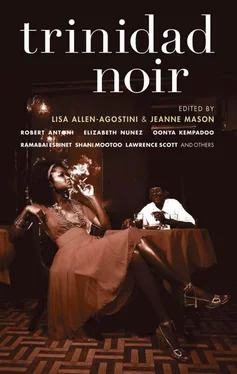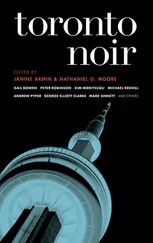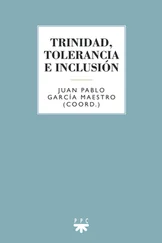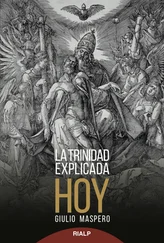Lisa Allen-Agostini - Trinidad Noir
Здесь есть возможность читать онлайн «Lisa Allen-Agostini - Trinidad Noir» весь текст электронной книги совершенно бесплатно (целиком полную версию без сокращений). В некоторых случаях можно слушать аудио, скачать через торрент в формате fb2 и присутствует краткое содержание. Город: New York, Год выпуска: 2008, ISBN: 2008, Издательство: Akashic Books, Жанр: Детектив, на английском языке. Описание произведения, (предисловие) а так же отзывы посетителей доступны на портале библиотеки ЛибКат.
- Название:Trinidad Noir
- Автор:
- Издательство:Akashic Books
- Жанр:
- Год:2008
- Город:New York
- ISBN:978-1-933354-55-2
- Рейтинг книги:4 / 5. Голосов: 1
-
Избранное:Добавить в избранное
- Отзывы:
-
Ваша оценка:
- 80
- 1
- 2
- 3
- 4
- 5
Trinidad Noir: краткое содержание, описание и аннотация
Предлагаем к чтению аннотацию, описание, краткое содержание или предисловие (зависит от того, что написал сам автор книги «Trinidad Noir»). Если вы не нашли необходимую информацию о книге — напишите в комментариях, мы постараемся отыскать её.
Trinidad Noir — читать онлайн бесплатно полную книгу (весь текст) целиком
Ниже представлен текст книги, разбитый по страницам. Система сохранения места последней прочитанной страницы, позволяет с удобством читать онлайн бесплатно книгу «Trinidad Noir», без необходимости каждый раз заново искать на чём Вы остановились. Поставьте закладку, и сможете в любой момент перейти на страницу, на которой закончили чтение.
Интервал:
Закладка:
The new widow was late arriving because the updo of her hair, the first time it had been styled, was to her tastes unsuitable, too austere. Her stylist had been obliged to wash, set, dry, tease, comb, and spray the do all over again until there was an upsweep reminiscent of at least one of the wings of the Nike of Samothrace, the sculpture in the Louvre in Paris where she and John had honeymooned. In seeing the headless statue, so early in their marriage, there occurred an immediate self-recognition — not the present self, but the one she would become: strong, on the wing, a soar of stone. She would have her hairdresser create the symbolic wing of her funereal costume, precisely on her very present head, a declaration that John Lucknow Mansing had not succeeded in driving her crazy.
At seventy-nine years of age, one her husband’s junior, and for a while not so limber anymore, she finally gave in to the necessity of a walking cane. Hers, a gift from the yardman, was fashioned out of a broomstick, carved to resemble a snake coiled around a hibiscus tree trunk. Two rubies, no doubt taken from the dead jeweler’s stash, marked the snake’s eyes.
From Matilda Jasodhra Mansing’s temples, neck, and wrists rose the scents of oil of geranium and ylang ylang to stem the staining fragrance of chloroform, the netherworld candle-smoke odors of a funeral parlor, and later, under the umbrella of a samaan tree at the San Fernando Lapeyrouse Cemetery, the fetid dampness of freshly dug, worm-ridden earth.
Meera Meera Johna Mansing, John and Matilda’s spinster, middle-aged, son-to-her-father, daughter-to-her-mother, female-born but gender-shifting like sunlight through a leafy tree on a windy day only child, tore herself away from Vishala (or was it Amanda, perhaps it was Brianni, or maybe Carmen that time?) — to whom she had been making passionate like amongst breadcrumbs, mustard seeds, flecks of arugula, shards of prosciutto, parts of meals they fed each other between play in a Brooklyn brownstone — and traveled hundreds of miles to Bel Air, La Romain, Trinidad, not because her mother told her to come and dispense with those damned termite-pocked, moth-eaten butterfly exhibition cases in which she felt Meera Meera Johna was implicated (having caught the butterflies for her father decades ago) and not because Meera Meera Johna was curious to see who would and who would not attend her father’s funeral — all reasons enough — but because it was from him she had learned the crafts she had been practicing when her mother’s phone call interrupted to say that “they” — meaning she and the yardman, for it was apparently “they” who made decisions nowadays — had taken her father off the respirator, and after ten days in a coma he had slipped quietly away, and it was to him she owed debts of gratitude.
As if it were not enough that he was her father.
“Me-me, come child, catch Papa a butterfly, will you?” John Lucknow Mansing would say.
“Did you see a Morpho today, Papa? Or shall I just get you a monarch?”
In childhood Meera Meera Johna was in awe of her father, thinking him then no ordinary indiscriminate collector but a specialist, for the ordinary orange and black monarch, and the considerably less common Morpho , were all he ever wished her to net him. Once, or twice, and in a blue moon, even thrice a season, mischievous rapacious wind currents twirling over the Guyanese rain forests would go after a Morpho , curl themselves about the unfortunate one, spin it about until it was rendered as if in a drugged state, and that wind would propel and haul, propel and haul the thing, at times like an iridescent blue handkerchief, at other times like an oversized candy foil wrapper, all the way from its native Guyana, high above the churning where the Caribbean Sea and the Atlantic do violent trade, to Bel Air, La Romain in southern Trinidad, where the wind, bored now and having spotted something else to toy with, the Anartia amathea — smaller, more delicate than the Morpho , and its simple red color a relief — the wind would drop the inextinguishably exquisite blue thing, drop it like a penny to the ground, only to sidle up now to Anartia amathea in the next phase of its serial-courting nature. Morphos , for this reason, on coming to what was left of their senses, remained rather dazed, and although they picked up their somewhat ragged, slightly ego-bruised selves, they were easy to net.
What John Lucknow Mansing did with these Morphos , their blue the inspiration for numerous Carnival and other kinds of costumes, what he did with these, for they disappeared soon after they were caught, remained a mystery until the day of his funeral. On the other hand, the monarchs that had been stretched and pinned were reduced by time to small orderly mounds of shiny dust in the cases that lined the walls of John Lucknow Mansing’s private study, under the shut doors of which, when he was alive, seeped the disturbing stench of chloroform.
Me-me, catch me a butterfly , is what he would say, offering his daughter the net.
Then came a Sunday that began like any other Sunday but turned out to be like none at all.
That very net led Meera Meera Johna by her nose, caused her to skip and trip up, down, and around behind a magnificent Morpho , the biggest she or her father had ever seen, one the size of a small child’s head, as sapphire one minute as the tropical sky at night, as silver and turquoise as the gulf the next, a butterfly-bird rising and falling on ribbons of ocean winds, a siren of iridescence drawing Meera Meera Johna through the front gate up the road past six houses and two corners, causing her to trespass up up up the high wide red-painted concrete stairs of Isabella Tatiana’s shrub and flower-surrounded bungalow. There, on Isabella Tatiana’s generous terrazzo-tiled veranda, Meera Meera Johna was suddenly breathless, and perched on the railing of an overly ornate wrought-iron balcony, she reached out, the net agape, for the flying thing, such a perfect present for her father, when it leaped lithely over the railing and was caught in a swirling current of air. It flapped its wings and, gaining control of itself, rose higher and higher, and once above the rooftops of the neighborhood, it stopped flapping its wings and merely glided. She had the good sense not to try and follow it.
The wall-length sliding doors to Isabella Tatiana’s house were drawn wide apart.
“Mrs. Tatiana?” Meera Meera Johna whispered from the balcony. There was no answer, so she called again. “Hello, Mrs. Tatiana? Are you there?”
She could have been a lucky thief that day, if she were so inclined. On tiptoe still, she entered and followed the net around walls and down the high-pile blue-red-taupe Afghancarpeted corridors that ended at a closed door through which low calls and moans wafted. Meera Meera Johna pressed her ear to the door to be sure and heard. A groan. Not an urgent or ugly groan but still, a groan. If someone behind a closed door were making a sound like that, whether ugly or not, wouldn’t you assume they might be in need of some assistance, she asked herself?
Meera Meera Johna called again: “Hello?” The groaning persisted, the sound of pleasure, curiously, and she, if she could be heard, was ignored. She turned the door’s handle, waited, and called again. So, unnoticed, she walked right in.
Meera Meera Johna saw everything. Realizing that the two on the bed were in no hurry and were oblivious to all, and that if she were to return and in earnest concentrate on the goings-on in there, she would need a little something to eat, she left the room in search of the little something. She shut the door as she might have shut any door, caring nothing about making door-closing noises — after all, the two were oblivious to all. She located the kitchen, and the refrigerator, and found in its freezer compartment a tub of milkweed-and-chrysanthemum flavored ice cream.
Читать дальшеИнтервал:
Закладка:
Похожие книги на «Trinidad Noir»
Представляем Вашему вниманию похожие книги на «Trinidad Noir» списком для выбора. Мы отобрали схожую по названию и смыслу литературу в надежде предоставить читателям больше вариантов отыскать новые, интересные, ещё непрочитанные произведения.
Обсуждение, отзывы о книге «Trinidad Noir» и просто собственные мнения читателей. Оставьте ваши комментарии, напишите, что Вы думаете о произведении, его смысле или главных героях. Укажите что конкретно понравилось, а что нет, и почему Вы так считаете.












